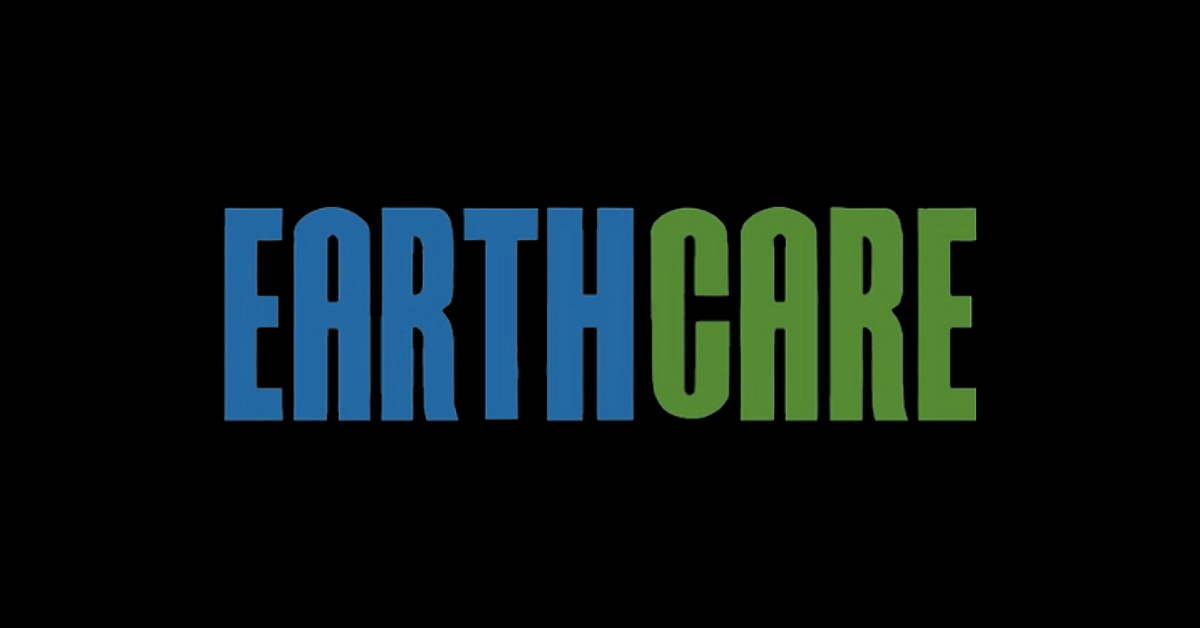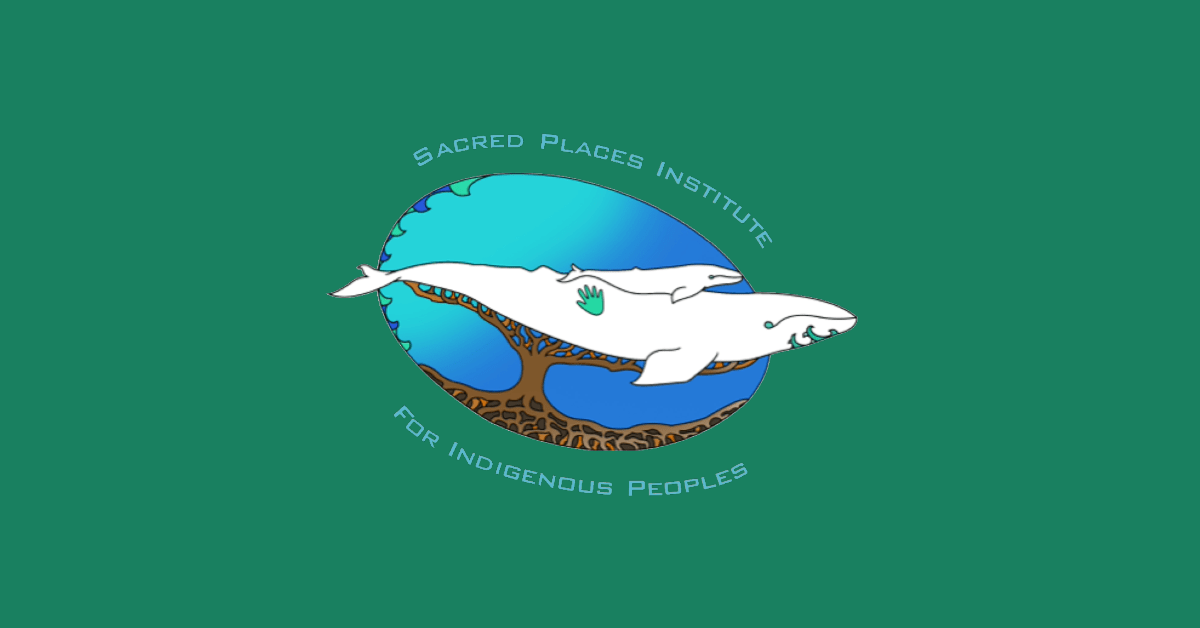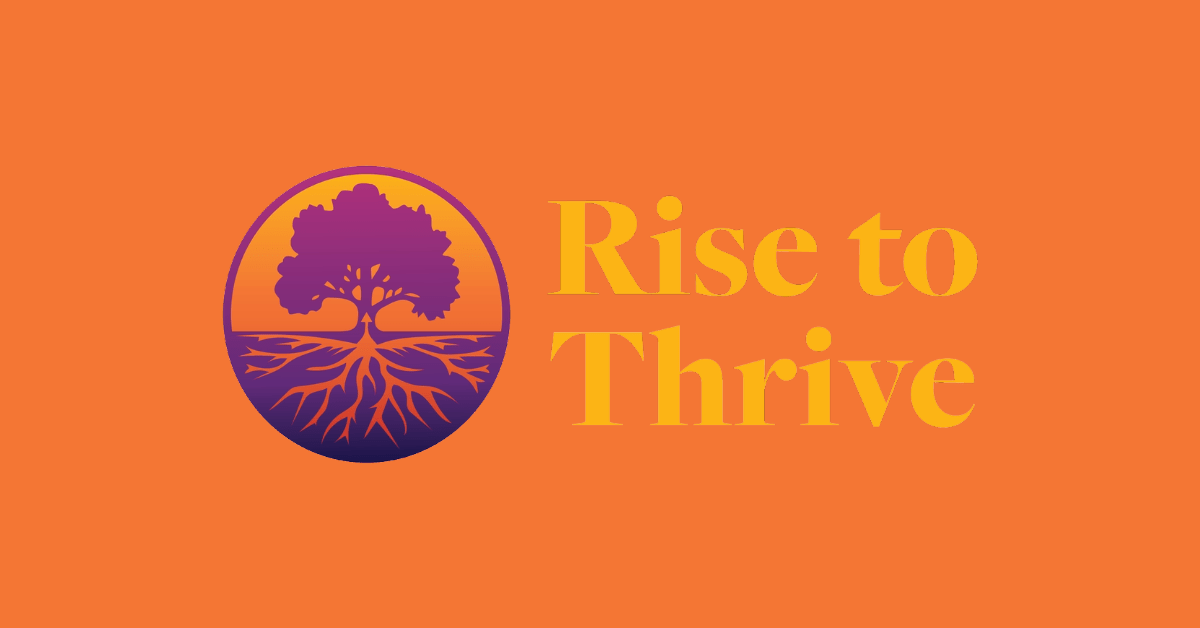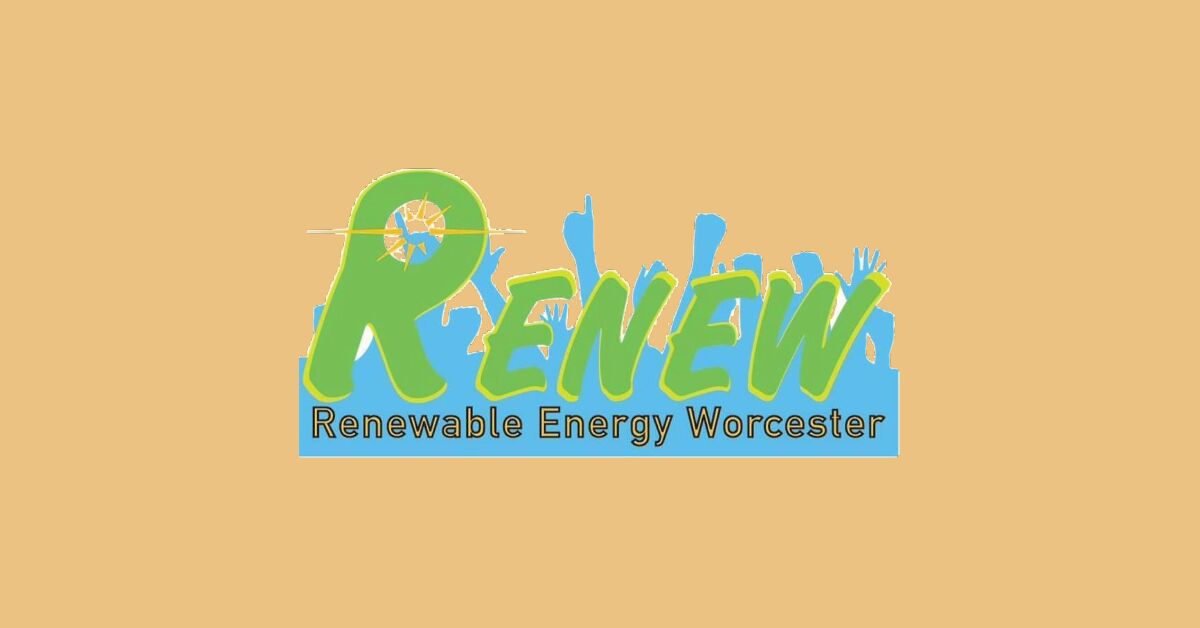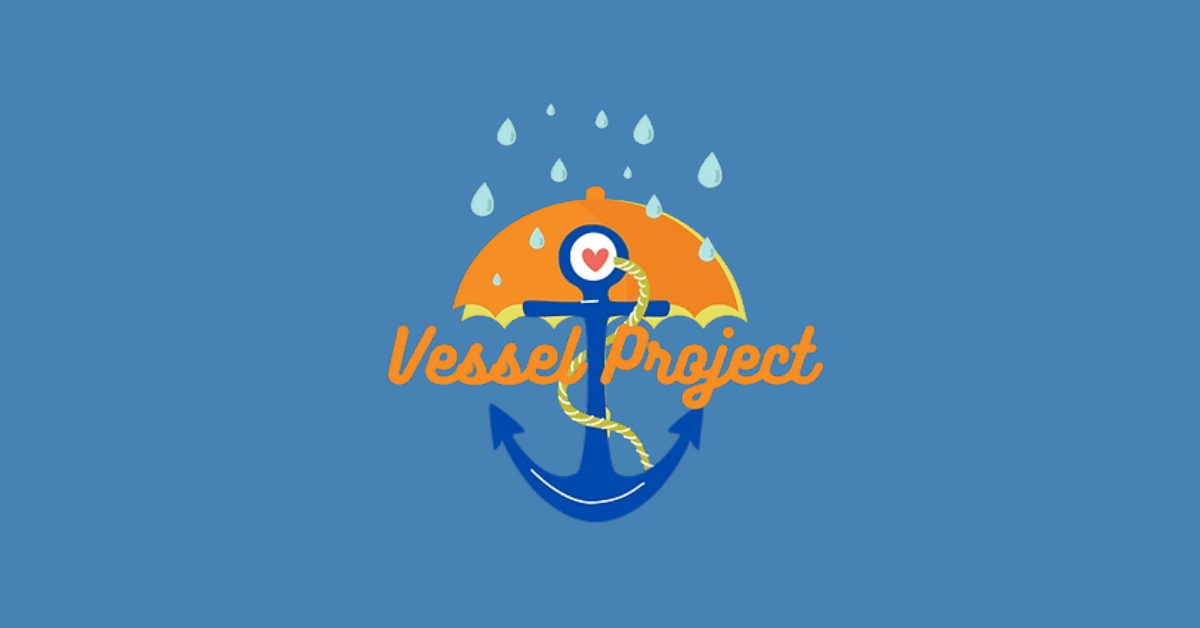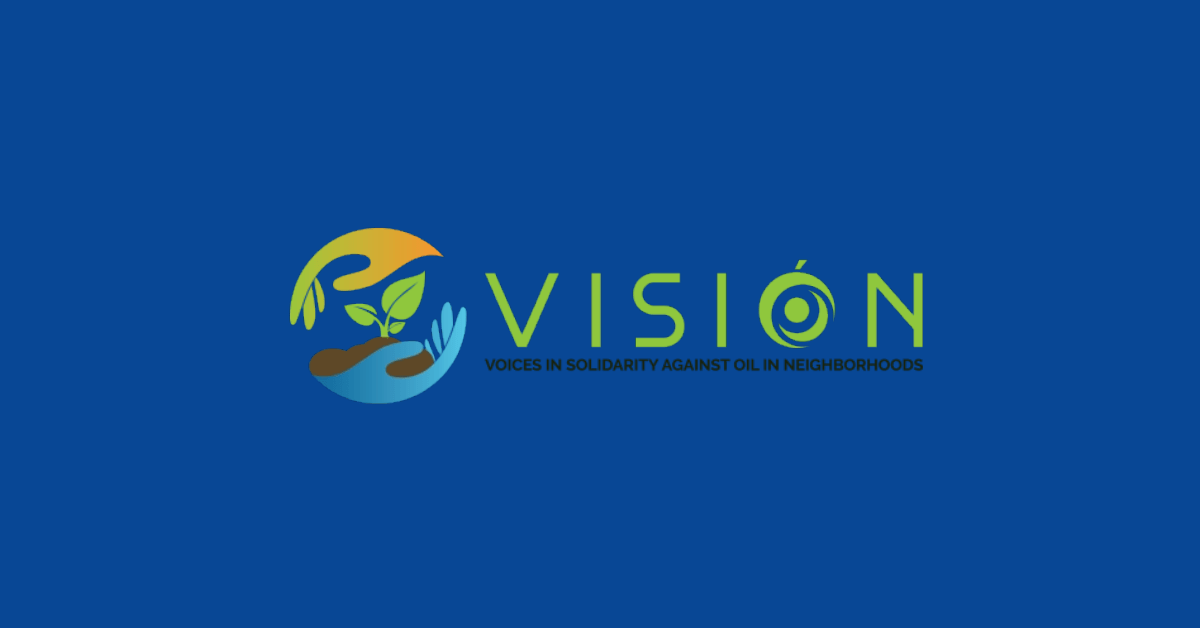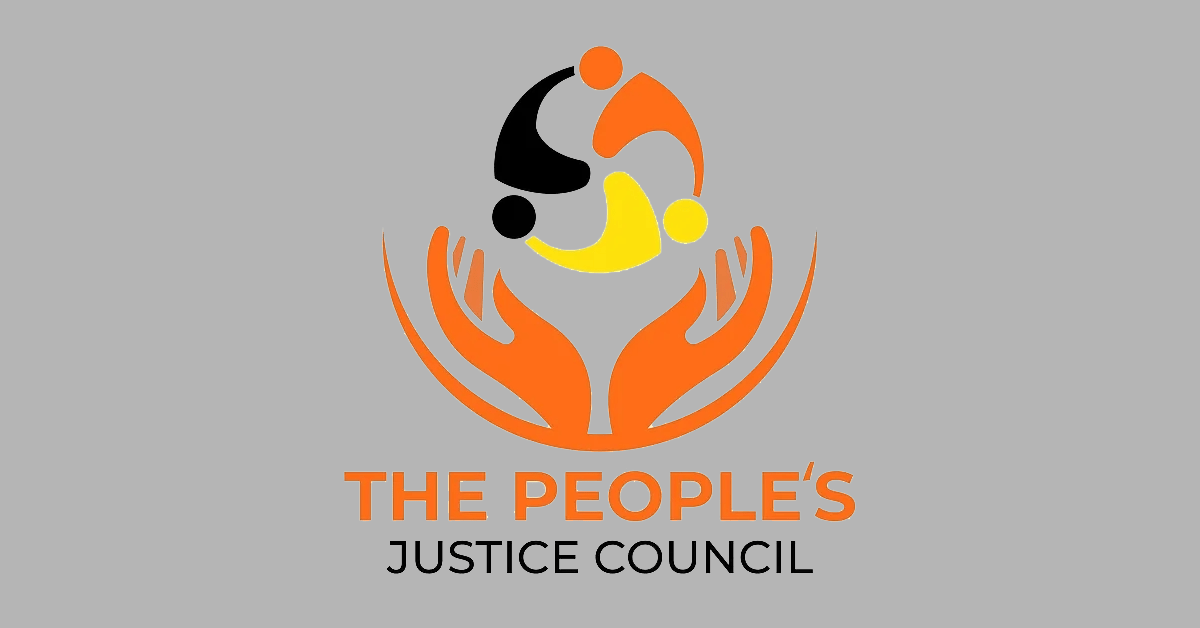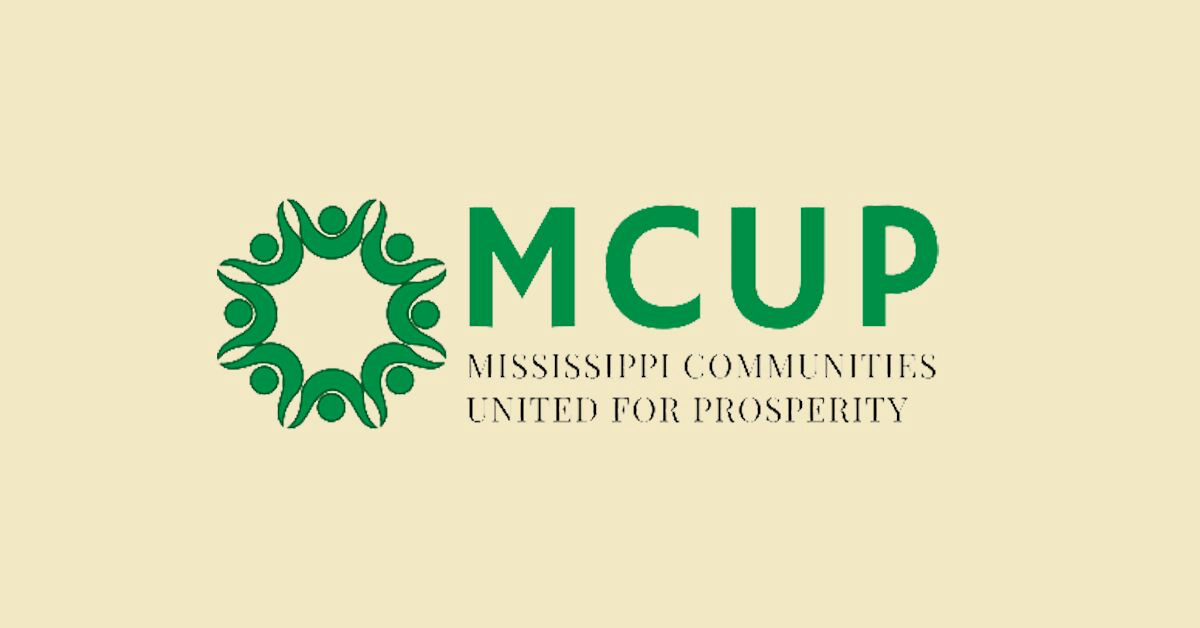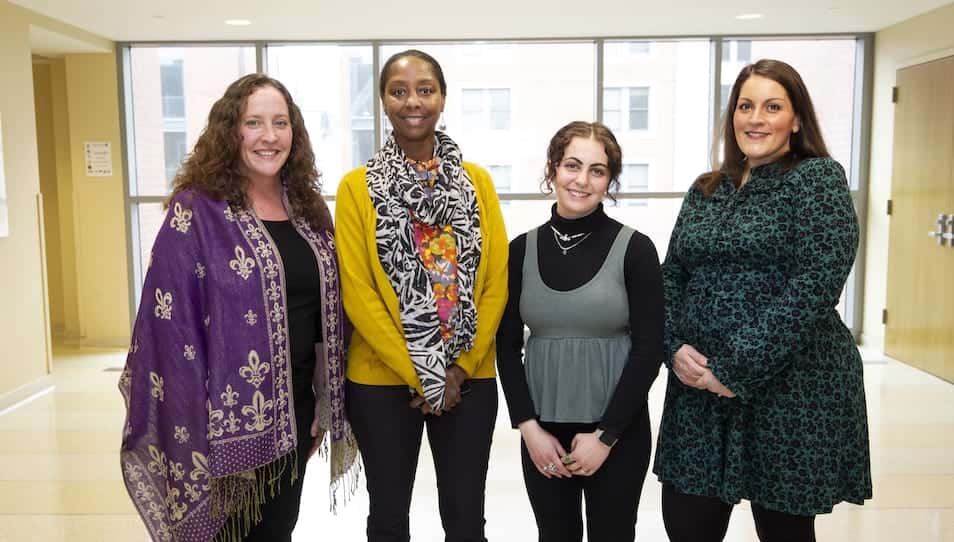

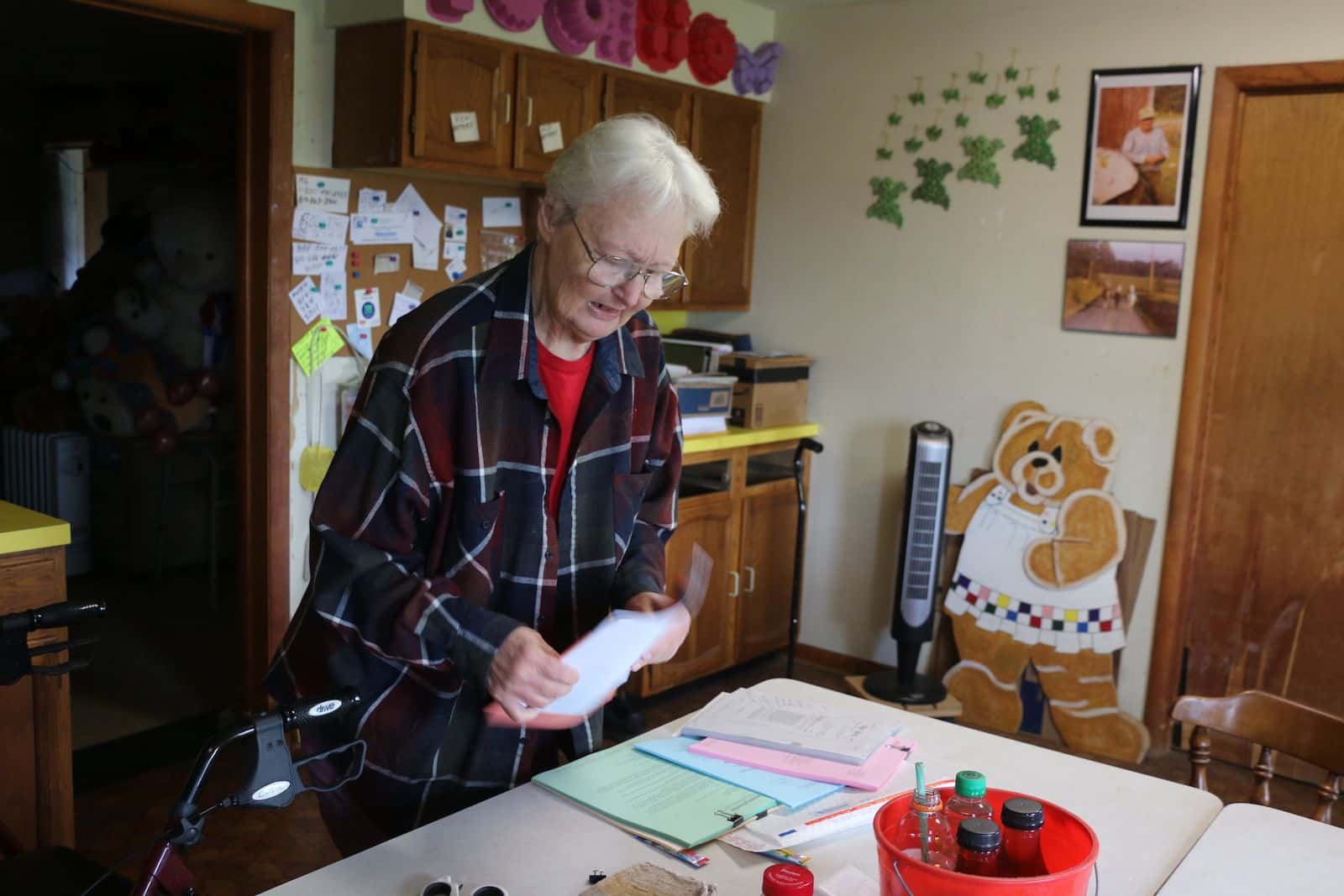
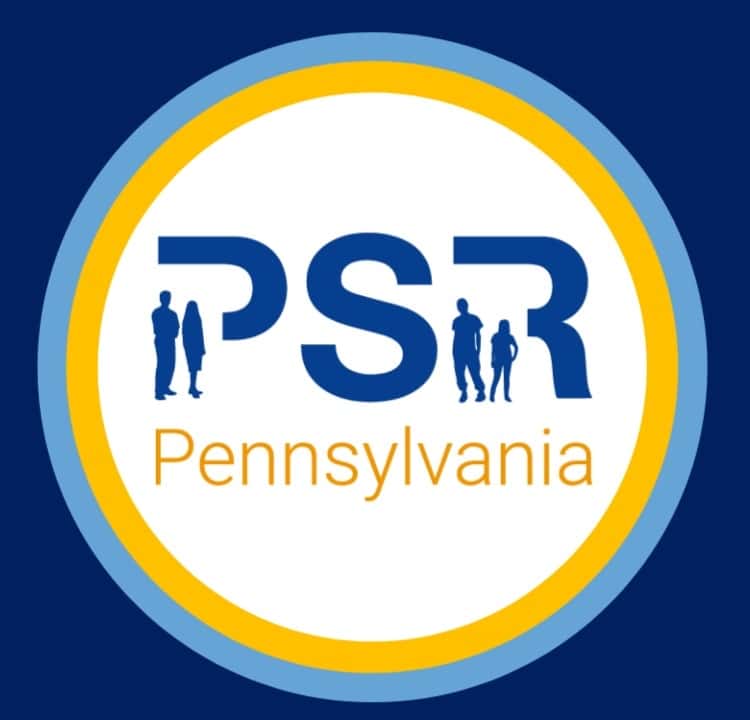
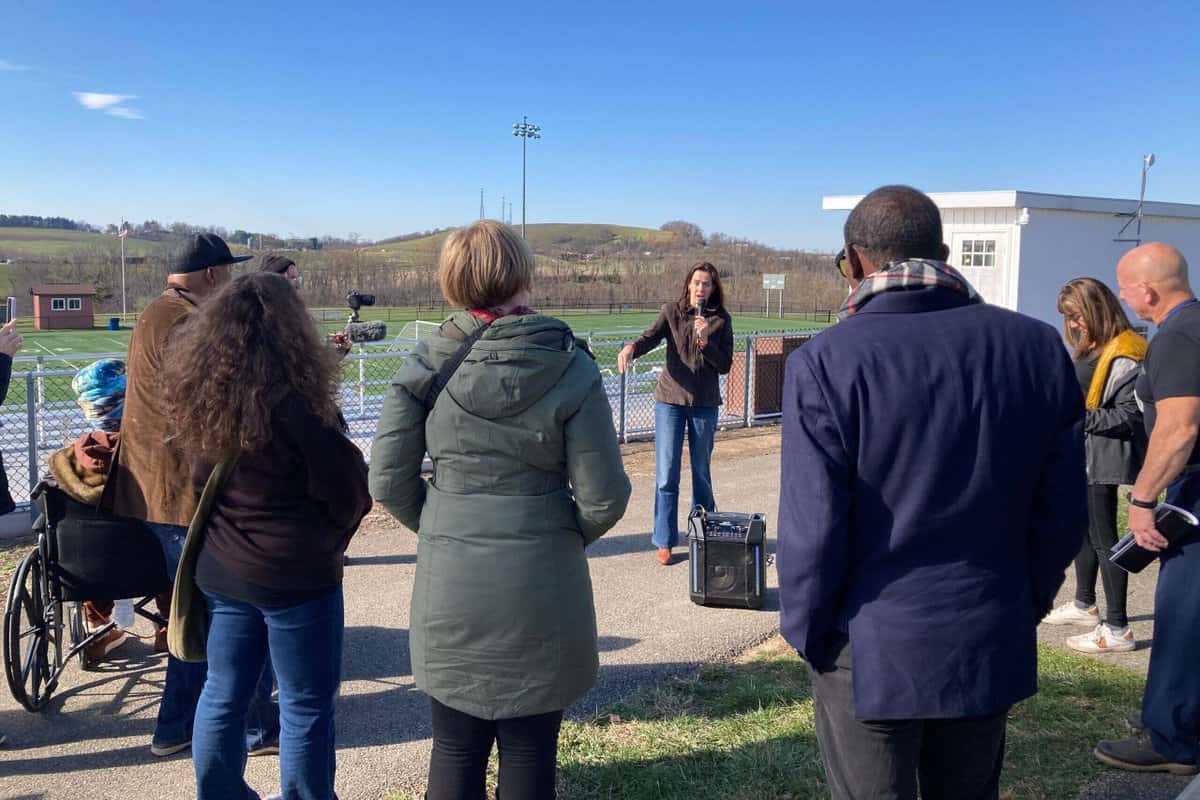
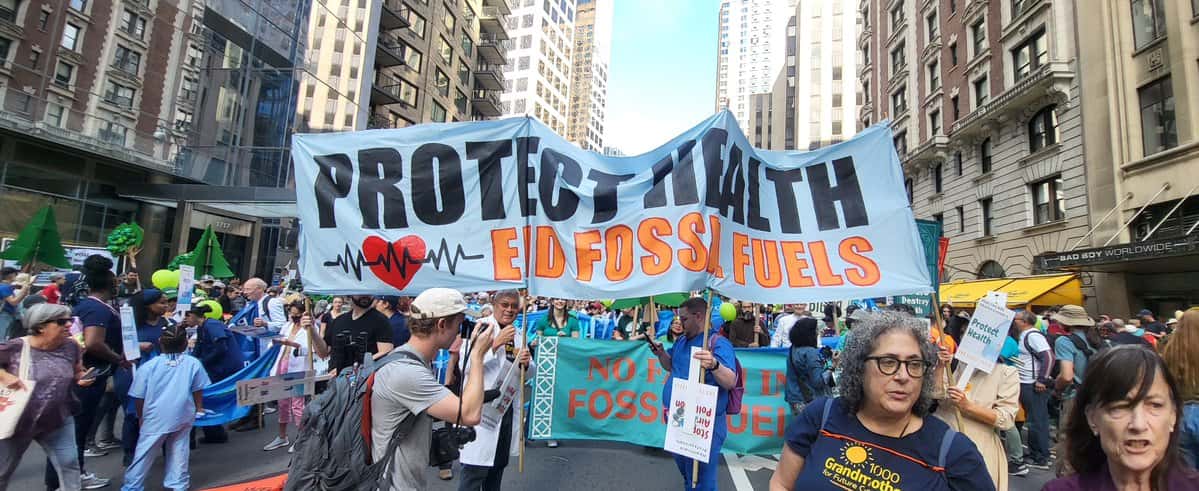
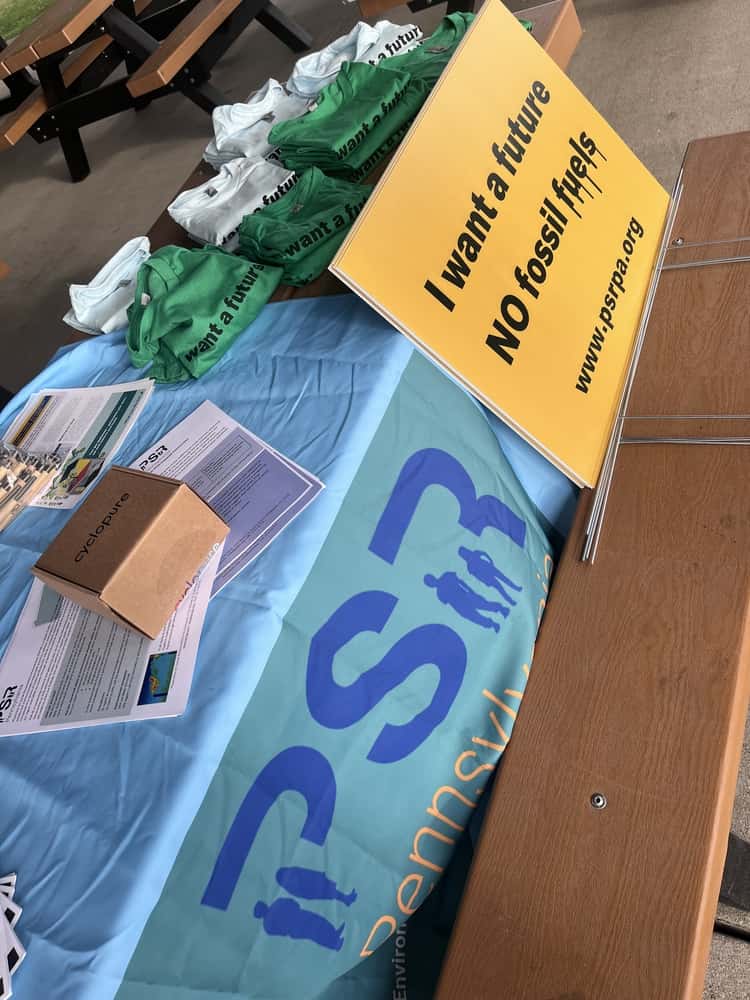
Physicians for Social Responsibility Pennsylvania (PSR PA)
Philadelphia, PA
In 2021, Climate Nexus launched an Energy Equity Regranting Project to help resource organizations, tribes, and community leaders on the frontlines of climate change and the impactful work they are doing to fight the gas industry. The energy equity transition grants prioritize grassroots groups with an annual budget of $1 million or less to boost their efforts in racially, ethnically, gender, and culturally diverse communities across the United States and at the intersections of public health and energy justice.
In our second year running the program, 11 organizations received grants ranging from $20,000 to $40,000, including Physicians for Social Responsibility Pennsylvania, whose work is detailed below.
Overview
Physicians for Social Responsibility Pennsylvania (PSR PA) has spent the past decade stressing the health dangers of fossil fuels to Pennsylvanians. Extractive companies like Shell drilled hundreds of thousands of wells in Pennsylvania, creating a generation of Pennsylvanians who face a higher risk of getting cancer if they live near fracking sites. To raise awareness, PSR PA has hosted four town halls and helped install in-home air quality monitors for residents near fracking sites. They helped residents in Philadelphia weatherize their homes via the Weatherization Assistance Program under the Pennsylvania Climate Action Plan.
Activities
PSR PA has been working against fracking for about eight years. This year, they presented new research about radioactivity surrounding fracking operations. They’ve also started an air quality monitoring project to help people understand the health impacts of methane gas, whether it’s living near a fracking site or burning methane gas to cook.
Town Halls
PSR PA organized a series of town halls in Chester Springs, Yukon, Beaver County, and Scranton, each attended by one and four dozen community members. The town halls provided an opportunity for PSR PA to educate Pennsylvanians on radiation associated with fracking, to learn what the primary concerns are in the communities, and what tools and resources PSR PA can offer to support local advocacy, such as pressuring municipalities or interacting with the Pennsylvania Department of Environmental Protection.
- The Emergency Management Coordinator for Upper Uwchlan Township attended the Chester Springs town hall and asked PSR PA to present to the Chester County Pipeline Safety Advisory Board. Executive Director Tonyehn Verkitus said, “There was a lot of interest in how they could help support our work and also how we could possibly be an advisory team for them as they were thinking about pipeline safety.”
- PSR PA hosted a town hall at the University of Scranton in collaboration with Friends of Lackawanna, a community organization that opposes a local dump accepting radioactive waste materials from fracking. This town hall earned media coverage in the Scranton Times-Tribune and the University of Scranton student newspaper, The Aquinas (see page 3).
Lessons Learned
Tonyehn Verkitus, Executive Director of PSR PA, reflected, “We’re going to expand our research to power plants, most specifically gas-powered power plants. And there was a report that came out from Penn Environment in May highlighting the “dirty dozen” in Pennsylvania, and this was all power plants and gas-powered [power plants] were especially high in the ranking. I could actually see one from my back deck, and so we wanted to look at those, but also orphaned and abandoned wells. The governor likes to tout that he has capped a hundred of them. And because people are so unaware of how many exist, yeah, that sounds great. So what we’re hoping to do is go out and find wells and figure out which ones are in the most need of capping and bring attention to the fact that there are so many out there, but also push deep to address this issue. We’re continually excited about extending the work of educating people about what’s happening around them from the infrastructure they might not even know about.”
Future and Sustainability
Tonyehn Verkitus, Executive Director of PSR PA, reflected, “We’re going to expand our research to power plants, most specifically gas-powered power plants. And there was a report that came out from Penn Environment in May highlighting the “dirty dozen” in Pennsylvania, and this was all power plants and gas-powered [power plants] were especially high in the ranking. I could actually see one from my back deck, and so we wanted to look at those, but also orphaned and abandoned wells. The governor likes to tout that he has capped a hundred of them. And because people are so unaware of how many exist, yeah, that sounds great. So what we’re hoping to do is go out and find wells and figure out which ones are in the most need of capping and bring attention to the fact that there are so many out there, but also push deep to address this issue. We’re continually excited about extending the work of educating people about what’s happening around them from the infrastructure they might not even know about.”
Linnea Bond, PSR PA Health Educator and Campaign Coordinator, reflected, “[I am] continually excited about expanding the work of educating people about what’s happening around them, [the] infrastructure they might not even know about. The guy I talked to two weeks ago was talking about how he first heard that the largest incinerator in the U.S. is blocks from his home by watching a documentary on the news. And he was an adult. He grew up around this incinerator. So people don’t even know what’s around them. And then people also don’t know what they’re using, where it comes from, when we use gas. What is that actually coming from, and what are industries trying to sign us up for and seal us into? We have the power to oppose it if we know about it.”
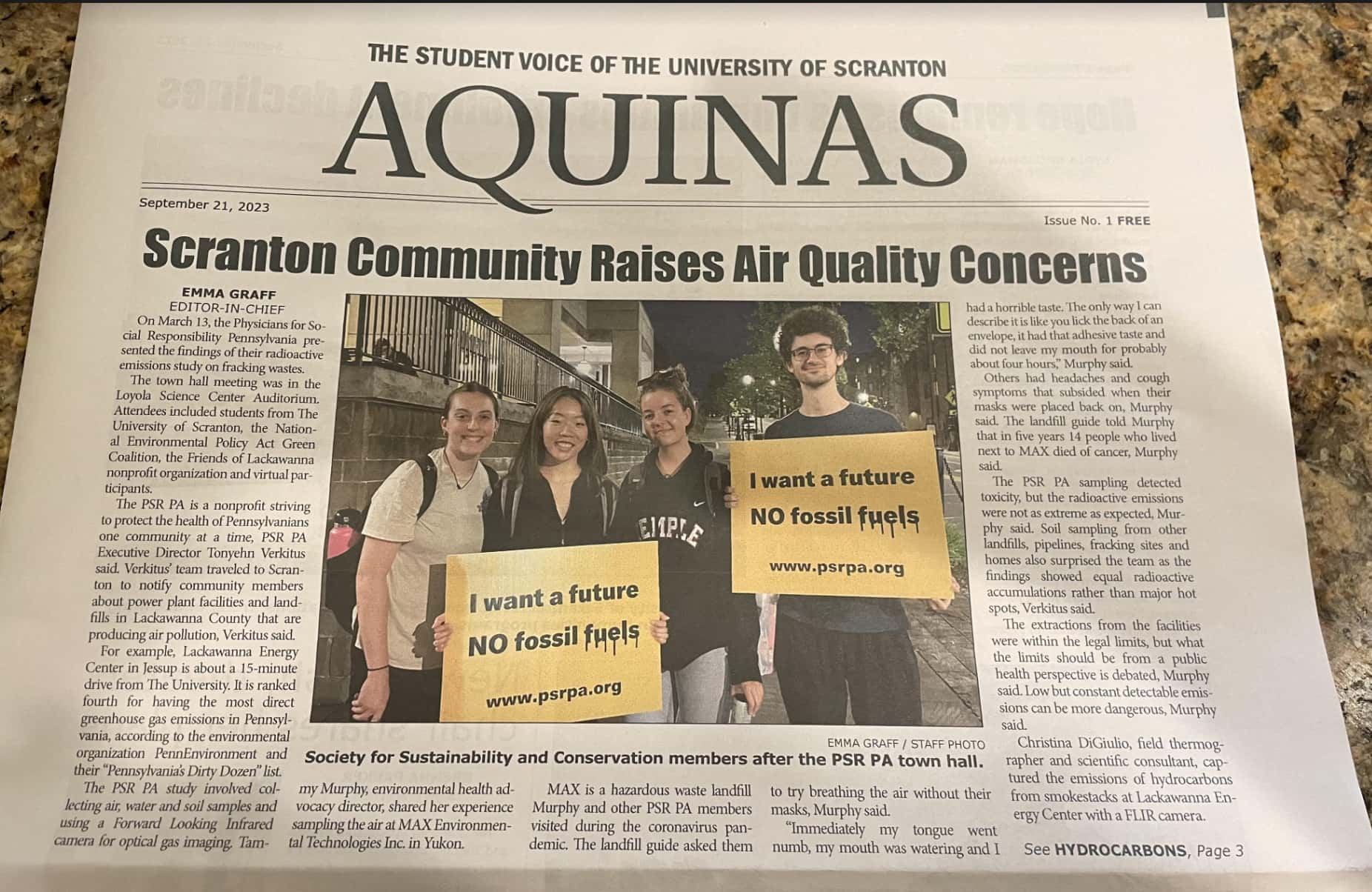




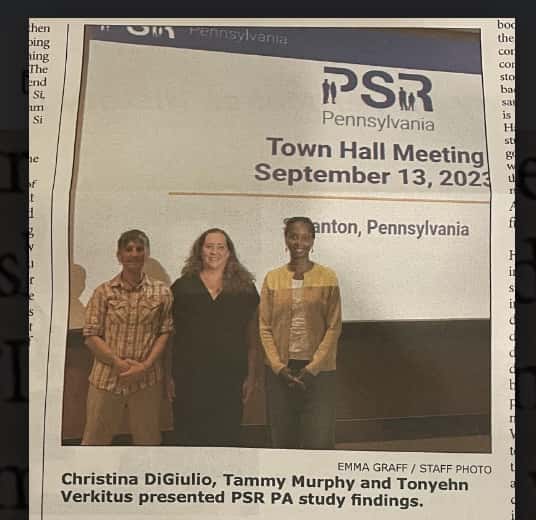


Filter Grantees by Year:
-

Earth Care
Earth Care is fighting false solutions like hydrogen and carbon capture, and is building public awareness of the health dangers of fracking.
-

Sacred Places Institute for Indigenous Peoples
The Sacred Places Institute for Indigenous Peoples is a forum for tribal communities to protect sacred sites and advance environmental priorities.
-

Rise to Thrive
Rise to Thrive builds community among Women and Femmes of Color across the country to catalyze a shift of power within the environmental movement.
-

RENEW Worcester
RENEW Worcester advances energy projects that prioritize communities and the buildout of affordable, renewable energy.
-

Viet Voices
Viet Voices educates San Diego’s Vietnamese community about sustainability, environmental health, and accessible housing.
-

Society of Native Nations
The Society of Native Nations works in Texas and California to contest the oil, gas, and petrochemical buildout from the Permian Basin to the Gulf Coast.
-

The Vessel Project of Louisiana
The Vessel Project is a mutual aid organization supporting people in Calcasieu Parish by meeting their emergency needs efficiently and without barriers.
-

VISIÓN
VISIÓN works with community organizations to establish health and safety buffer zones between oil wells and homes and schools.
-

7 Directions of Service
7 Directions of Service is fighting to cancel the Mountain Valley Pipeline’s Southgate Extension and to advance Rights of Nature laws.
-

People’s Justice Council
PJC organizes not-for-profit electricity coops around Montgomery and is organizing their constituency around energy and environmental justice.
-

Washington Interfaith Network (WIN)
Washington Interfaith Network is working to help low- and moderate income DC households switch from fossil fuels to clean and efficient electric heating.
-

Mississippi Citizens United for Prosperity
MCUP advances energy equity in Black and Indigenous communities by training women in clean energy contracting and project management.


